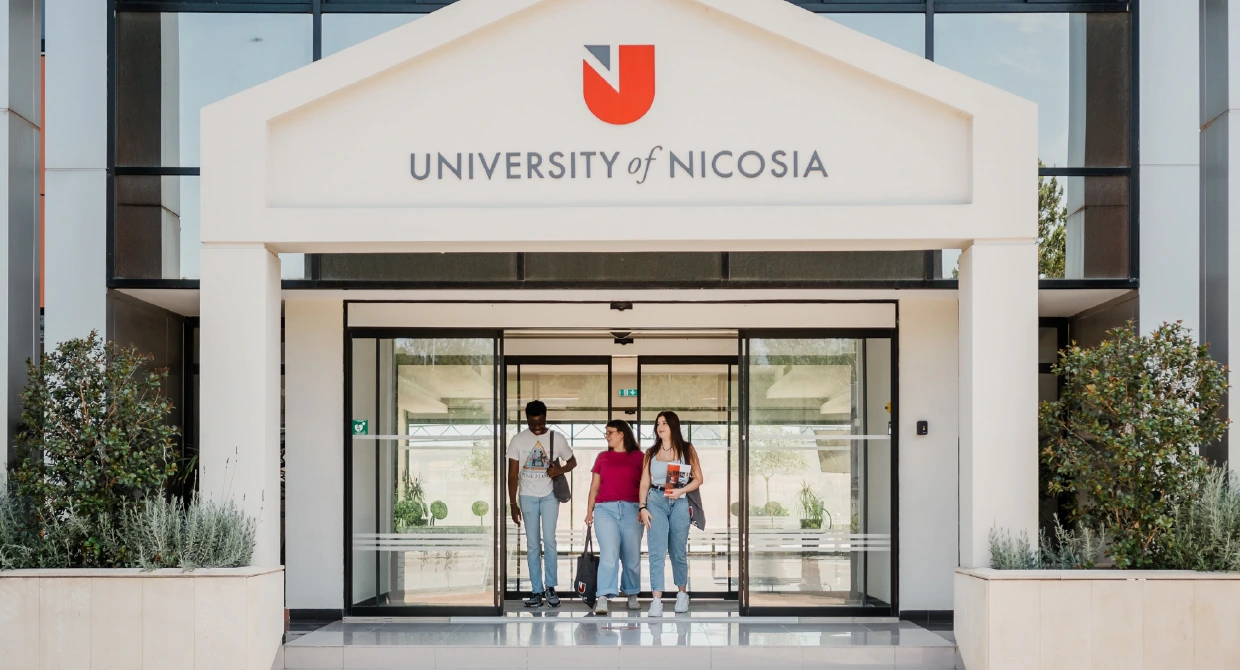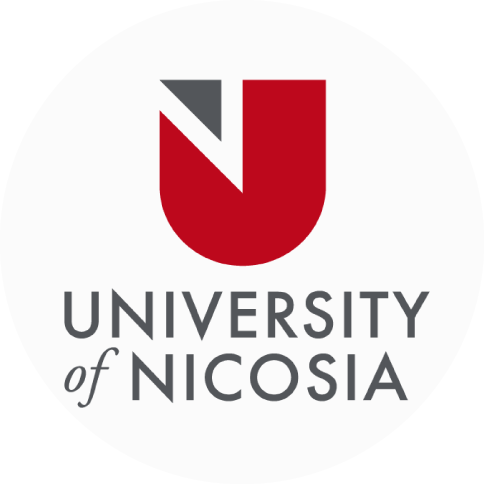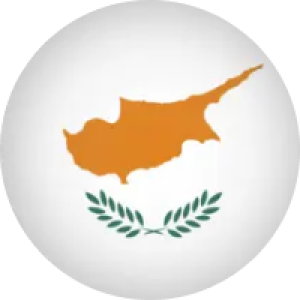
Home > Study in Cyprus > University of Nicosia > Doctor of Medicine (Graduate Entry)
Doctor of Medicine (Graduate Entry)
 University of Nicosia, Cyprus
University of Nicosia, Cyprus

EUR 24000
Annual Tuition Fee

EUR 60
Application Fee

60 months
Duration

6.5
IELTS

79
TOEFL

55%
Min GPA
Program Overview
The programme provides graduate students with the opportunity to receive high quality education in Medicine. As it is aimed at those holding a first degree, its mode of delivery focuses on a highly integrated approach to learning. It features an initial emphasis on the basic sciences relevant to medicine, followed by a system/ theme-based, clinically-focussed programme, using a combination of learning methodologies including case/ problem/ team-based learning, flipped classroom and clinical training. Directed self-learning and technology-based learning are both key to the programme. There is significant early clinical experience from Year Two culminating in the final two, purely clinical years, of study.
The general programme objectives are to:
- Train students to become highly competent physicians and equip them with the knowledge, skills and attitudes that will enable them to respond to the challenges of modern medicine.
- Produce competent and caring graduates, safe to practise initially as junior doctors, and with the potential to develop their careers in their chosen branch of medicine.
- Provide each student with the evidence-based knowledge and experience necessary to advance both scientifically and humanistically in the care and treatment of those who are ill including immediate care of medical emergencies.
- Foster the development of lifelong commitments to scholarship and service toward individual patients and the community.
- Encourage students to practise medicine holistically including ethical, legal, psychological and social considerations.
- Promote health and wellness through disease prevention and research.
- Contribute toward the establishment of Cyprus as a regional centre of excellence in medical education
Programme Learning Outcomes
The principles of the Medical School’s mission and core values underpin the design and development of the graduate entry MD programme and its intended outcomes for graduates. These outcomes have been designed on the basis that graduates of the programme will have the required knowledge, skills and professional competencies to provide safe and effective patient-centred care and have been grouped under these three corresponding headings.
Upon completion of the programme students should be able to:
Knowledge
- Explain normal human structure and function at the molecular, cellular, tissue, organ and whole-body level from conception to old age.
- Explain the scientific principles underlying common and important disease processes including inflammation, infection, neoplasia and trauma.
- Describe basic pharmacological principles together with the pharmacology of commonly used medications, including their modes of action, pharmacokinetics, medication interaction and side effects.
- Describe the role of genetics in predicting the risk of disease and in personalised medicine.
- Explain the determinants of normal human behaviour at an individual and societal level.
- Explain how psychological and sociological factors might impact on the risk of disease and the outcome of treatment.
- Describe how individuals adapt to major life changes, including the onset of illness.
- Explain the concept of ‘wellness’ and describe the importance of promoting lifestyle factors in achieving the best possible health.
- Describe the role of epidemiology in evaluating the health of a population.
- Discuss the role of environmental, ecological, social, behavioural, occupational and cultural factors in determining health at individual, community and societal levels.
- Describe the principles of primary, secondary and tertiary disease prevention, together with the role of immunisation and screening.
- Describe the basic principles of communicable disease control in both hospital and community settings.
- Discuss the role of nutrition in health and illness.
- Discuss the determinants of health from a global perspective and recognise the impact that global factors may have on local health.
- Describe the utility of qualitative and quantitative methods in scientific research.
- Interpret common statistical methods used in medicine and in medical research.
- Critically appraise the research literature in terms of study design, results, analysis and conclusions.
- Discuss the role of doctors in contributing to the collection and analysis of patient data.
- Describe the principles of health informatics.
Skills
- Communicate compassionately and effectively with patients and when relevant, with significant others including taking a relevant focused history.
- Communicate effectively with colleagues in all professional settings, including group situations.
- Communicate effectively by written and by electronic means as well as orally.
- Keep accurate clinical records and demonstrate skills in the recording, organisation and management of information including the use of appropriate information technology.
- Conduct an examination of the major body systems in a simulated environment.
- Assess, investigate and manage patients in a safe, competent and caring manner applying sound clinical reasoning at all stages of the process.
- Prescribe drugs safely under supervision including dosage calculation, prescription writing and administration.
- Recognise and manage life-threatening conditions and provide the immediate core of medical emergencies including First Aid and resuscitation.
Professional Competencies
- Discuss the nature of medical professionalism and its importance in patient care recognising that the care and safety of patients is central to their everyday practice.
- Work with members of the multidisciplinary team and understand their own personal roles and responsibilities within the team as well as those of other healthcare professionals.
- Discuss the basic principles that underpin good ethical practice including the need to respect patients regardless of their lifestyle, culture, beliefs, religion, race, colour, gender, sexuality, disability, age, and social or economic status.
- Be aware of and be able to discuss the major ethical issues in healthcare as may be encountered in everyday clinical practice including concern for confidentiality and respect for individual autonomy.
- Explain the importance of maintaining patient confidentiality and of respecting the autonomy, dignity and privacy of patients.
- Explain one’s professional and legal responsibilities when accessing information in relation to patient care, research and education.
- Demonstrate an understanding of the importance of always acting with honesty and integrity, including the duty of open disclosure when things go wrong.
- Demonstrate an understanding of when patient consent is required and how it is best obtained. This includes an understanding of when and how consent needs to be obtained from a third party.
- Recognise the potential impact on patient care of one’s personal beliefs and biases and describe the strategies that mitigate this.
- Describe the principles of safeguarding of children and vulnerable adults.
- Display a life-long commitment to scholarship and service towards the individual patient and the community.
- Practise medicine holistically taking into account ethical, legal, psychological and social considerations.
- Promote health and wellness through disease prevention and research.
- Contribute toward the establishment of Cyprus as a regional centre of excellence in medical education.
Additional Information
Program Level Bachelor's Degree
College/University Processing Time 30 Days
Program Format Full-Time
Post Study Work Permit (PSWP) 
General Admission Requirement
Academic Requirement
Minimum Level of Education Required: To be accepted into this program, applicants must have a Bachelor’s degree from any field with at least a 2.2 class honours or equivalent GPA.
PLUS
Entrance Examination
- MCAT: 498 minimum score; Or
- GAMSAT: 55 minimum score (must have a minimum of 50 in all sections); Or
- UCAT: 2500 overall score (1875 for applicants taking the UCAT in 2025) with a minimum of 500 in each section, and a situational judgment score within Bands 1-3. Note that UCAT is accepted ONLY for those who hold a Bachelor of Science degree in the Life Sciences or Biomedical Sciences with at least a UK 2.2 class honours or equivalent GPA. Please contact us if you wish to inquire about your eligibility.
Similar Programs


University of Nicosia
Intake Feb 2026
Sep 2025

Application Fee

Duration
Test Score
6.5
IELTS
79
TOEFL
90
Min GPA


University of Nicosia
Intake
Sep 2025

Application Fee

Duration
Test Score
6.5
IELTS
79
TOEFL
90
Min GPA
Tuition Fee
The values given below are estimated figures, excluding extra charges like material fee, student activity fees, athletic fees, health care, etc., for courses. To know more, please visit the Programs page.
Average Tuition Fee Per Year
24000
Tuition Fee
(EUR)
EUR 60
Application Fee
(EUR)
21600 Per year
Average Cost of Living
(EUR)
The living costs include the total expenses per month, covering accommodation, public transportation, utilities (electricity, internet), books and groceries.
Check program website for more information about funding options.
Scholarships
UNIC Foundation Chaucer Scholarships
Inspired by Geoffrey Chaucer, these scholarships aim to support students committed to English language development and academic excellence.
- Value: 25%
- Final Tuition: €5,625
- Availability: 10 scholarships per participating country
Application: Via direct UNIC application or through authorized agents.
Scholarships – Financial Aid
The University offers scholarships and financial aid to full-time students, in the form of academic merit scholarships, financial-aid assistance, athletic scholarships. All types of scholarships/financial aid available are explained below:
Academic Merit Scholarships
1. Based on Previous Academic Performance
Students, in their first year at the University, are eligible for a scholarship on the basis of the grades of their High School Leaving Certificate, based on the country in which this qualification was issued. Scholarships are given as a percentage reduction on tuition and are valid for one academic year.
In order to be eligible for this type of scholarship, students must:
- submit their High School Leaving Certificate upon application, and
- be registered on a full-time basis (30 ECTS per semester)
More information about this type of scholarship is available at the Admissions Department.
2. Based on Academic Performance at the University
Two regular semesters after the student first registers and every semester thereafter, scholarships will be awarded according to the student’s academic performance at the University, as follows:
| Cumulative GPA | Scholarship |
|---|---|
| 4.00 | 50% |
| 3.75 – 3.99 | 20% |
| 3.50 – 3.74 | 10% |
In order to be eligible for this type of scholarship, students must have:
- full-time status (30 ECTS per semester)
- completed a minimum of 30 credits/60 ECTS at the University, and
- been registered in the previous semester
Athletic Scholarships
Students who are actively involved in the University sports teams may be eligible to receive athletic scholarships of up to 40% of their tuition. High level athletes may also be eligible for a scholarship based on their achievements (each case is examined individually).
Students can contact the Sports Office of the University of Nicosia for more information about athletic scholarships.
Financial Aid
Financial aid is available to native students only and is given in the form of a scholarship, regardless of academic performance, as follows:
- Students from disadvantaged socioeconomic background. Students interested in this type of financial aid must complete the “Application for Scholarship/Financial Aid” form. New students need to submit this application to the Admissions Department while returning students (after their first year of studies) need to submit the application to the Financial Aid Office (email: [email protected]). Points are awarded to the applicant based on various socioeconomic criteria. The scholarship amount will depend on the total points awarded.
- Students who come from large families (4 children or more) are eligible for a 15% scholarship for the entire duration of the programme.
For EU/International students scholarships are offered depending on the economic condition of each country.
UNIC Academic Family Scholarships
- University of Nicosia and Intercollege graduates wishing to apply for a second degree at UNIC are eligible for a 10% scholarship for the entire duration of the programme.
- Families with two or more siblings studying at the University during the same semester are eligible for a 10% scholarship for each child.
Terms and conditions
- The applicants for a Scholarship/Financial Aid must have submitted an Application for Admission to a programme, with full-time status, and must comply with the acceptance criteria of that programme.
- The Financial Aid application must be accompanied by all required supporting documentation (e.g. annual income, number of dependents in family, etc.)
- Unless stated otherwise, scholarships are valid for one academic year and are calculated on the programme tuition.
- The extent, amount and duration of the scholarship after the first year of studies, is decided by the University after the relevant application has been submitted. The application should be submitted before the commencement of the next academic year.
- Students eligible for more than one type of Scholarship/Financial Aid will be awarded the scholarship constituting the highest amount.
- Scholarships are not awarded in the case of Distance Learning Programmes, Postgraduate Programmes (with the exception of “UNIC Academic Family” Scholarships) and Medical School Programmes.
Not sure what you are looking for?
Don’t worry, we are here to help.
Top Places To Study In Canada









